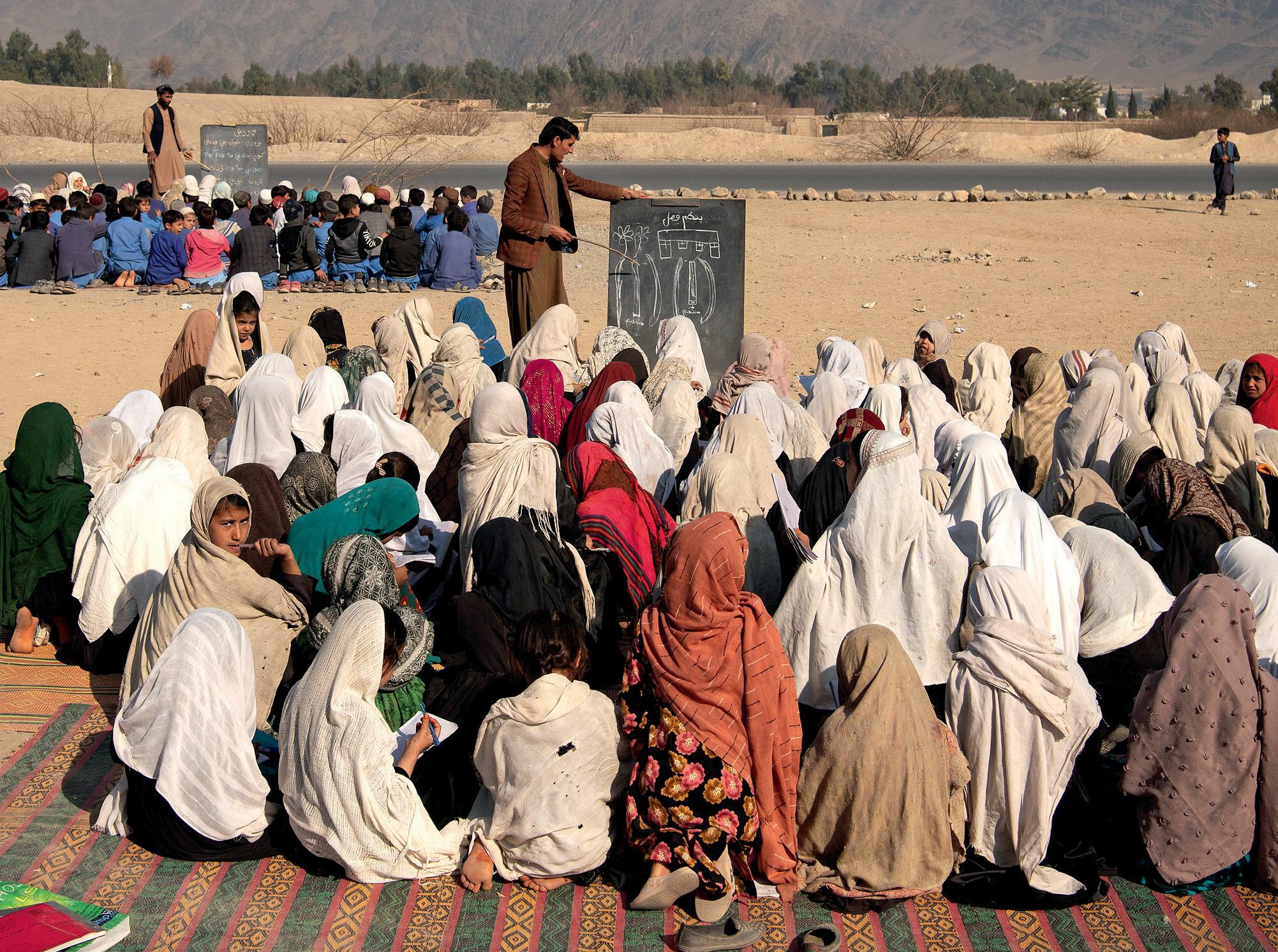Prøve GULL - Gratis
Alive, but unable to thrive under absolute patriarchy
The Guardian Weekly
|November 22, 2024
Since the Taliban returned to power, women and girls have tried defiance, but despair at their harshly restricted lives

Earlier this year, I spent 10 weeks travelling with the photographer Kiana Hayeri across seven provinces of Afghanistan, speaking to more than 100 Afghan women and girls about how their lives had changed since the Taliban swept back to power.
Hayeri and I both lived in Afghanistan for years, and remained here after the Taliban took control in August 2021.
In the past few years, we have seen women's rights and freedoms, already curtailed, swept away as Taliban edicts have fallen like hammer blows.
Afghan women have been banned from schools, universities, most workplaces even parks and bathhouses.
 From Kandahar, the political headquarters of the Taliban, the group's leaders have dictated that women must cover their faces in public, always be accompanied by a man and never let their voices be heard in public.
From Kandahar, the political headquarters of the Taliban, the group's leaders have dictated that women must cover their faces in public, always be accompanied by a man and never let their voices be heard in public.As foreign women, we still carried the rare privilege of freedom of movement, which has nearly disappeared for the 14 million Afghan women and girls across the country. Meeting women while ensuring their security was a daily challenge.
Each province we travelled to revealed different shades of oppression. In some areas in the south and east in particular - women were already living under very restricted conditions before the Taliban's official return, with many saying that now, at least, there was no more violence.
For many, the Taliban's refusal to allow girls to attend secondary education has been the hardest blow. We met Gulsom, 17, who survived a suicide attack on her school a few months before the Taliban came back into power. Severely wounded, she must now use a wheelchair and had to continue her studies at an underground school.

Denne historien er fra November 22, 2024-utgaven av The Guardian Weekly.
Abonner på Magzter GOLD for å få tilgang til tusenvis av kuraterte premiumhistorier og over 9000 magasiner og aviser.
Allerede abonnent? Logg på
FLERE HISTORIER FRA The Guardian Weekly
The Guardian Weekly
Le Pen's court hearing shows mainstream parties are running out of time
In a Paris courtroom, the first act of the 2027 French presidential election is already under way.
2 mins
January 30, 2026

The Guardian Weekly
Half world's largest cities in high water stress areas
Half the world's 100 largest cities are experiencing high levels of water stress, with 38 of these sitting in regions of \"extremely high water stress\", new analysis and mapping has shown.
2 mins
January 30, 2026

The Guardian Weekly
‘This is what fascism looks like’
Alex Pretti's death could be a moment of reckoning for Democrats to call time on Trump waging war on his people
4 mins
January 30, 2026

The Guardian Weekly
Wicked tunes this way come
US writer, director and singer Whitney White's musical mashup All Is But Fantasy gives the fates of Shakespeare's women a thrilling twist
4 mins
January 30, 2026

The Guardian Weekly
Greenland sparks rare resistance to Trump in his own party
Donald Trump pulled back from the brink on Greenland but not before causing untold damage to the Nato alliance.
3 mins
January 30, 2026

The Guardian Weekly
'So alarming' Shark attacks spread fear among NSW beachgoers
In a city of more than 100 beaches, swimming and surfing are part of Sydney's lifeblood.
3 mins
January 30, 2026
The Guardian Weekly
I adore my husband, but I feel like a fraud at his church
When I met my husband, I knew he was churchy, but as a low-church Protestant, I thought this wouldn’t be a problem.
2 mins
January 30, 2026

The Guardian Weekly
Ancient rain recycling practices revived for modern age
When the legendary Taiwanese rock band Mayday were due to perform in Beijing one evening in May 2023, some fans were worried that the rainy weather could affect the show.
3 mins
January 30, 2026

The Guardian Weekly
Peril and promise US peace plan faces hard tests on the ground
As Donald Trump’s board of peace launched in Davos amid self-congratulation, his administration laid out plans for the shortand long-term future of Gaza, aimed at a lasting peace.
2 mins
January 30, 2026

The Guardian Weekly
Why so many find the Beckhams' family feud such relatable stuff
As we continue to unpack the meaning of the Beckham family feud, I don’t think enough attention has been paid to the roast chicken.
3 mins
January 30, 2026
Listen
Translate
Change font size

